Nowadays people are looking for cheaper laundry products, cheaper food, stationary, powder or liquid detergent, clothes, and so on. But most of them don’t know which one is cheaper other than? Liquid or powder?
laundry powder detergent
In the following, we compare these two in price, quality, efficiency, and other specifications. Laundry is a duty that requires a lot of planning and organization since there are so many different factors to take into account. Which cycle would be most appropriate for you? What temperature are we talking about? Should we wash our towels in a separate load from the rest of our clothes? If you’ve ever been careless with your laundry and dumped everything from your hamper straight into the washing machine, you’ve probably already experienced the consequences of your actions. However, the detergent that you use to launder your garments is, if not more so, at least just as significant as the method that you use. When it comes to powder detergent or liquid detergent, it varies. 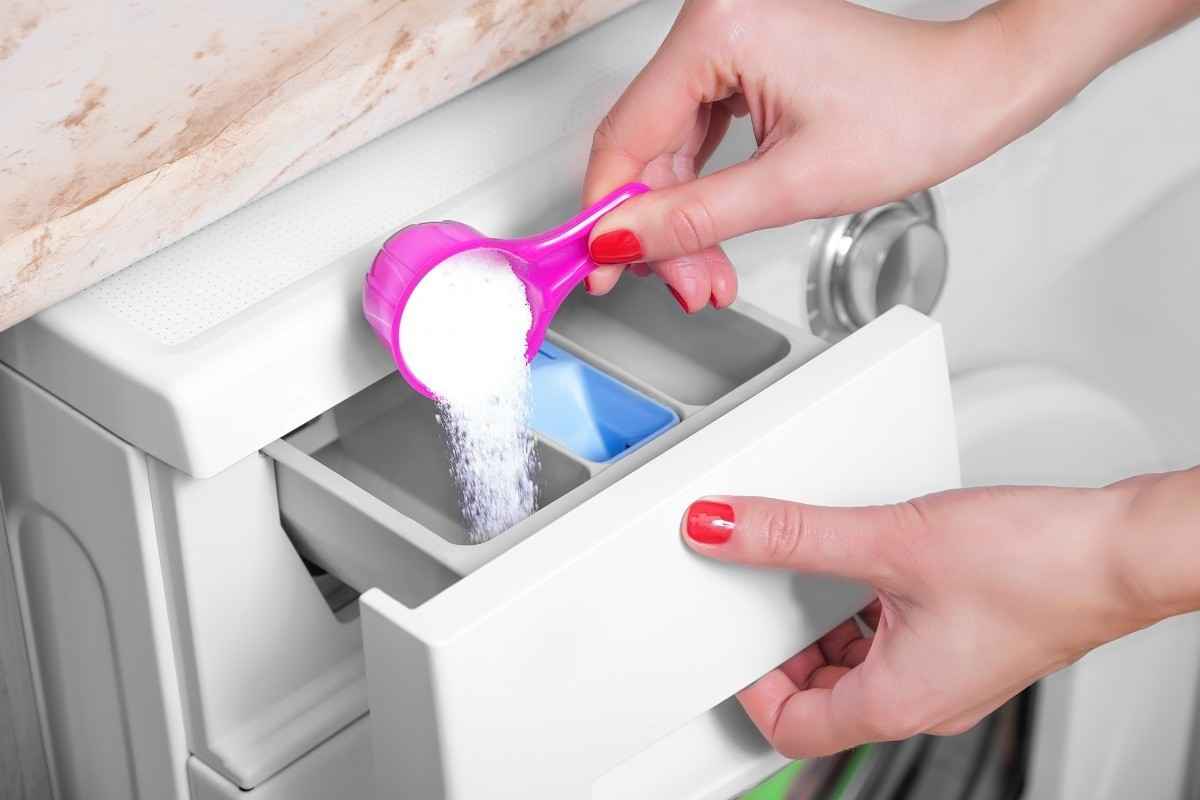 Powder detergent is cheaper The more affordable option of powder detergent is perhaps one of the most compelling arguments in favor of making that selection. According to Shoaib Arif, who works as the manager of applications and technical support at Pilot Chemical, a manufacturer of surfactants, the production of liquid detergents requires more chemistry, which results in a lower cost. Powder detergent works well on outdoor stains Linear alkylbenzene sulfonate, which is the primary surfactant in powder detergent, is very effective on stains caused by outdoor elements such as dirt, clay, or grass. When dealing with greasy or oily stains, liquid detergent is the most effective option. The majority of liquid detergents include alcohol ethoxylates as one of its constituents. Alcohol ethoxylates are good in removing greasy stains and are included in most liquid detergents. Liquid detergent is more convenient When compared to scooping out a quantity of powder, the process of pouring out a tiny amount of liquid soap into the washing machine is typically believed to be the simpler of the two. It is also a headache to clean up any droppings if you are not proficient at moving the powder from one container to another, so be sure to practice beforehand. Last but not least, powdered laundry detergent often comes packaged in a cardboard box that is cumbersome, awkward to transport, and prone to tearing, particularly if it is exposed to moisture.
Powder detergent is cheaper The more affordable option of powder detergent is perhaps one of the most compelling arguments in favor of making that selection. According to Shoaib Arif, who works as the manager of applications and technical support at Pilot Chemical, a manufacturer of surfactants, the production of liquid detergents requires more chemistry, which results in a lower cost. Powder detergent works well on outdoor stains Linear alkylbenzene sulfonate, which is the primary surfactant in powder detergent, is very effective on stains caused by outdoor elements such as dirt, clay, or grass. When dealing with greasy or oily stains, liquid detergent is the most effective option. The majority of liquid detergents include alcohol ethoxylates as one of its constituents. Alcohol ethoxylates are good in removing greasy stains and are included in most liquid detergents. Liquid detergent is more convenient When compared to scooping out a quantity of powder, the process of pouring out a tiny amount of liquid soap into the washing machine is typically believed to be the simpler of the two. It is also a headache to clean up any droppings if you are not proficient at moving the powder from one container to another, so be sure to practice beforehand. Last but not least, powdered laundry detergent often comes packaged in a cardboard box that is cumbersome, awkward to transport, and prone to tearing, particularly if it is exposed to moisture. 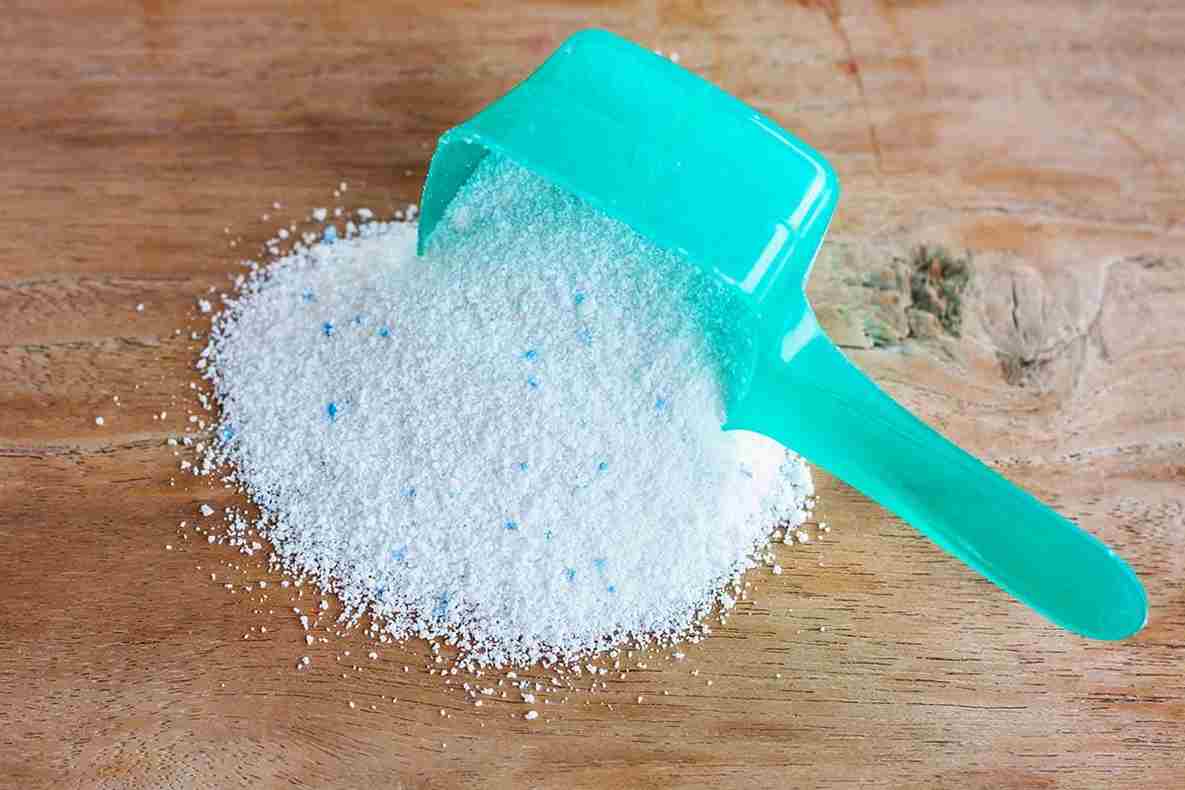
laundry powder woolworths
Check out our guide to the safest laundry detergents if you are concerned about your family’s health and well-being. Liquid detergent isn’t as sustainable Boxes made of cardboard, despite the fact that they may be a nuisance to deal with, are simple enough to recycle. Unlike powder detergent, liquid detergent comes in a plastic container. Even though it is possible to recycle plastic, a significant number of customers and municipalities do not take part in recycling programs. The Environmental Protection Agency (EPA) reports that because of this, plastic containers are among the least recycled of all container types. Additionally, since liquid detergent includes a significant amount of water, it is more difficult to transport, which results in an increased amount of greenhouse gases being released into the environment. The shelf life of powdered laundry detergent is much longer. Powdered cleaning agents are more stable than their liquid and solid equivalents, which allows them to maintain their cleaning effectiveness for a much longer period of time. When combined with water, liquid cleaning products lose most of their effectiveness. Powder detergent is the superior option to liquid detergent if you are the sort of person who likes to shop in large quantities. Here are some other things that you should consider purchasing in large quantities. The liquid form of the detergent is more easily dissolved in the wash water. When it comes to the temperature of the water, powder detergent might be quite particular. Certain brands may not dissolve in cold water settings, particularly those used in high-efficiency (HE) washing machines. This is a significant problem if you have a lot of garments that can only be washed in cold water (to prevent the textiles from shrinking and the colors from bleeding) as well as if you are attempting to reduce the amount of money you spend on your monthly power bill. 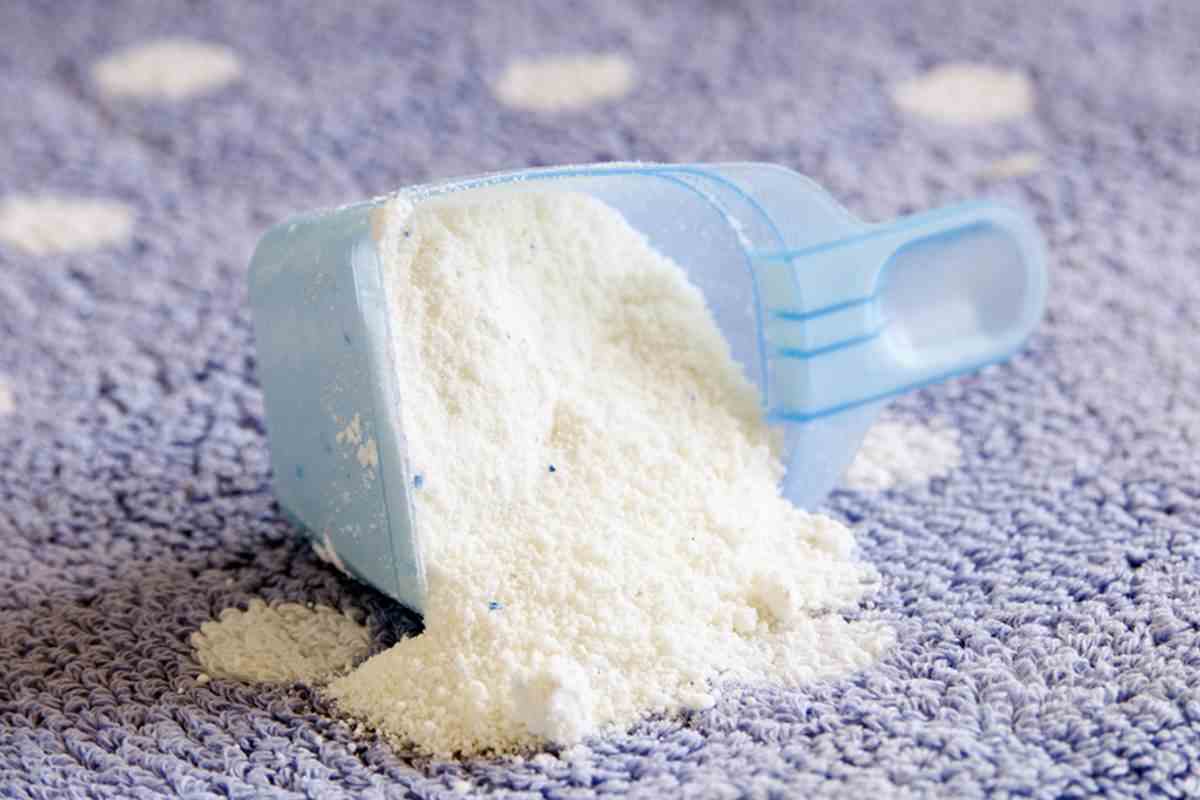
laundry powder scoop
If you use powder detergent and opt to wash your clothing in cold water, you run the risk of having lumps of undissolved detergent remain on your garments, which will need more time spent doing the laundry. In the meanwhile, liquid detergent may be used effectively with water of any temperature, including cold, warm, and hot. Once you become aware of these typical laundry blunders, you will never again accidentally shrink a cherished blouse or cause a pair of black jeans to fade. Your washing machine may suffer damage from one of these two things. The usage of powder may result in lumps of undissolved detergent being left behind, which can create buildup in the drainage system of your washing machine and eventually lead to blockages. On the other hand, research conducted by Consumer Reports discovered that the measuring caps of liquid detergent are seldom marked with distinct lines. As a result, it is all too simple to use more than the recommended amount.  It is also difficult to establish exactly how much liquid you need for a small, medium, or big load since there is a huge amount of variation. The presence of an excessive amount of suds may result in a variety of issues, including extended cycles of rinsing and leakage. Just keep in mind that adding additional detergent won’t make a difference, even if the laundry is very dirty, odorous, and discolored. If there are suds left over after the rinse cycle, this indicates that your garments are not getting clean. Powder and liquid detergents both have their advantages and disadvantages, but ultimately they both clean your clothing. The majority of liquid laundry detergent is water, so if you must use it, opt for a concentrated formula. The concentrated formula of Mrs. Meyer’s Laundry Detergent may be used for up to sixty-four loads of laundry. It is biodegradable and HE compatible, and it is safe for textiles since it uses surfactants produced from plants and enzymes that break down dirt and stains. Tide Plus Bleach Powder is a wonderful option if you like powder detergent since it is designed to be equally effective in cold water as it is in hot. In addition, it uses bleach that won’t ruin the fabric’s original color to whiten garments.
It is also difficult to establish exactly how much liquid you need for a small, medium, or big load since there is a huge amount of variation. The presence of an excessive amount of suds may result in a variety of issues, including extended cycles of rinsing and leakage. Just keep in mind that adding additional detergent won’t make a difference, even if the laundry is very dirty, odorous, and discolored. If there are suds left over after the rinse cycle, this indicates that your garments are not getting clean. Powder and liquid detergents both have their advantages and disadvantages, but ultimately they both clean your clothing. The majority of liquid laundry detergent is water, so if you must use it, opt for a concentrated formula. The concentrated formula of Mrs. Meyer’s Laundry Detergent may be used for up to sixty-four loads of laundry. It is biodegradable and HE compatible, and it is safe for textiles since it uses surfactants produced from plants and enzymes that break down dirt and stains. Tide Plus Bleach Powder is a wonderful option if you like powder detergent since it is designed to be equally effective in cold water as it is in hot. In addition, it uses bleach that won’t ruin the fabric’s original color to whiten garments.
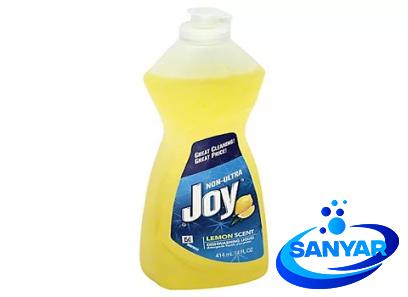
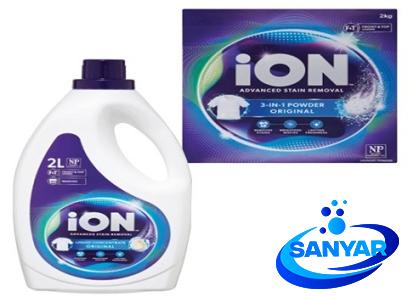
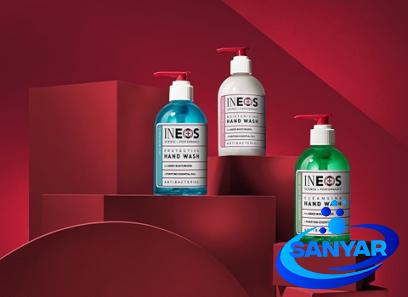
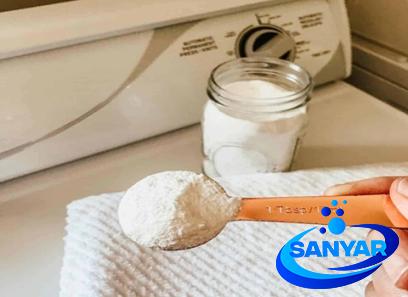
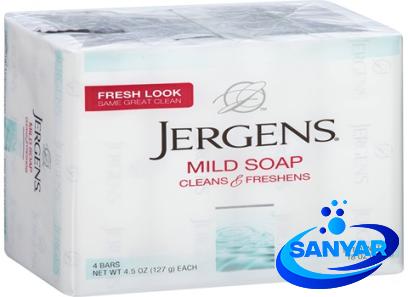
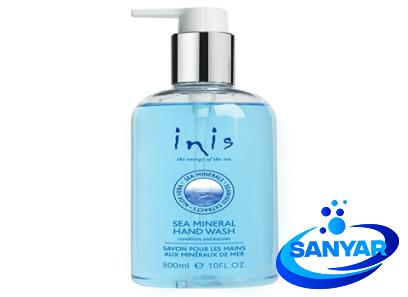
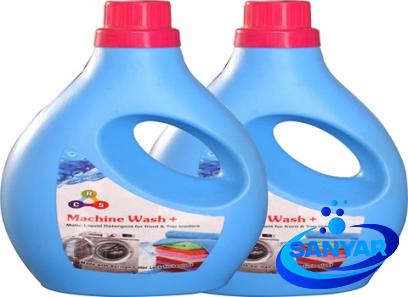
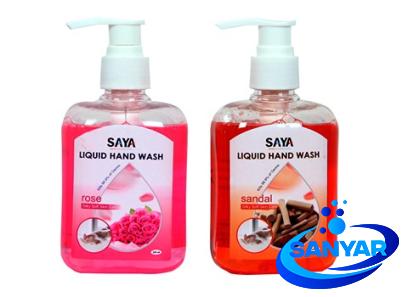
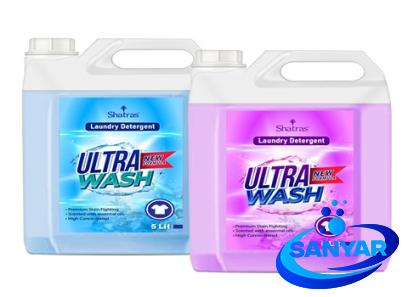
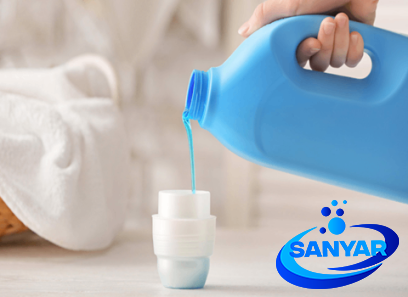
Your comment submitted.